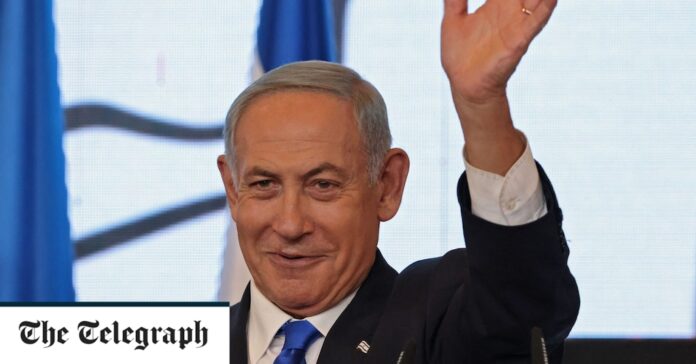The Israeli politician was close to Putin, and may well be the man to put an end to the Ukraine war
Given the strong emotions Benjamin Netanyahu tends to evoke on both sides of Israel’s political divide, his emergence as the candidate most likely to form a new government is already causing much controversy, both inside Israel and beyond.
For his detractors, his continued participation in Israeli politics is motivated by his attempts to stop legal proceedings over allegations concerning fraud and corruption, which led to his removal as prime minister last year. Back then, the broad spectrum of the political enemies he had acquired, on both Left and Right, during his 12-year stint in power led many to write his political obituary.
Yet, such is the volatile nature of Israeli politics that, after voters experienced their fifth poll in four years, Netanyahu now stands on the brink of forming a new government.
His emergence as Israel’s kingmaker owes much to the alliance that he has formed with hard-line religious groups, raising fears that a new Netanyahu administration will adopt a more nationalist agenda, such as annexing the West Bank.


